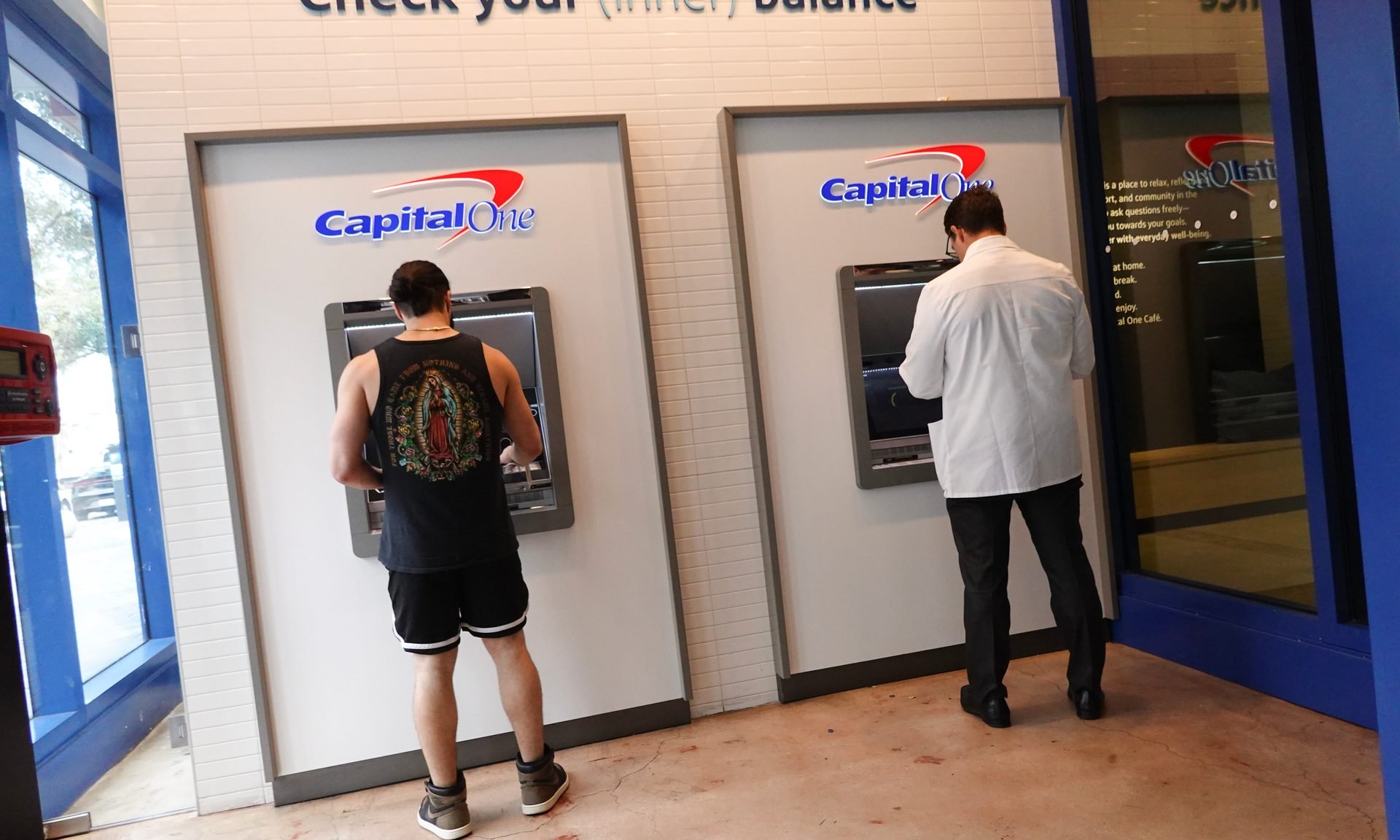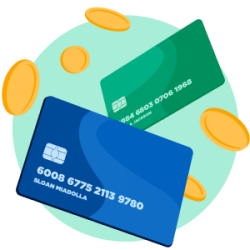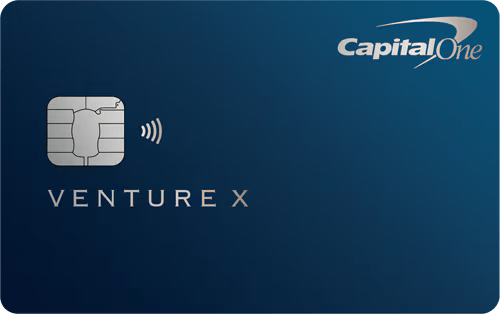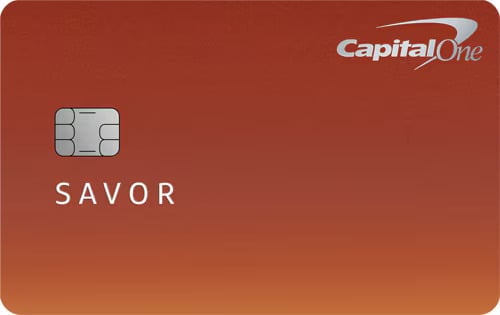Capital One’s Discover Acquisition: 5 Things to Know
Capital One’s deal with Discover could mean stiffer competition for American Express, Visa and Mastercard.

Many or all of the products on this page are from partners who compensate us when you click to or take an action on their website, but this does not influence our evaluations or ratings. Our opinions are our own.
On April 18, 2025, Capital One and Discover announced that they had received the final regulatory approval needed for Capital One to acquire Discover. The transaction is expected to be completed on May 18, 2025, according to a joint press release from the companies.
Capital One also noted that there’ll be no changes to customer accounts immediately after the acquisition and that customers will be notified ahead of any future changes.
The article below was originally published on Feb. 20, 2024, after Capital One announced its plan to acquire Discover.
Capital One’s $35.3 billion all-stock deal to purchase Discover could make it the largest credit card issuer in the country, in addition to expanding both its digital banking presence and Discover’s global payment network.
The deal arrives as consumers are struggling to keep up with inflated prices — and they’re carrying more credit card debt than before the pandemic. A report by the Federal Reserve Bank of New York, released on Feb. 6, found that Americans held a collective $1.129 trillion in credit card debt at the end of 2023. By comparison, by the end of 2019, Americans held $930 billion in credit card debt.
The report also showed that borrowers are having trouble repaying their debt. Serious delinquencies among credit card borrowers rose 6.36% in the fourth quarter of 2023 compared with a 4.01% increase at the same time in 2022. Both Capital One and Discover show an increase in delinquency rates, but Discover’s fourth-quarter results reported a larger spike in consumer card delinquencies than Capital One's.
After a Capital One call for investors on Tuesday morning, the markets responded: Discover’s stock rose while Capital One shares dipped slightly.
In the call, Capital One indicated it expects the deal to be complete by the end of 2024 or early 2025 — that is, if federal regulators allow it. The acquisition is expected to face close scrutiny in the coming year.
Here’s what you need to know about Capital One's Discover acquisition and how it could affect customers:
See the best Capital One cards
Capital One has cards for earning rewards and cards for building credit. Some even do both.

1. Capital One would be a formidable credit cards competitor
The deal opens the door for Capital One to become the nation’s largest credit card issuer by outstanding debt, outpacing JPMorgan Chase and Citigroup, according to the payment industry trade journal the Nilson Report. The company will remain based in McLean, Virginia, while maintaining a significant presence in Chicago, where Discover is based.
In the call with investors on Tuesday, Richard Fairbank, CEO and chairman of Capital One, touted the benefits of acquiring Discover’s global payment network, which will allow Capital One to more directly deal with merchants as opposed to a network intermediary. The more merchants Capital One can reach, the more money it stands to make over time.
While Capital One still holds contracts with Visa and Mastercard for many of its credit products, it will move at least some of its cards onto the Discover network over time, thus keeping a larger slice of the lucrative merchant fees its customers generate.
By owning a payment network, Capital One is poised to compete with its most direct competitor, American Express, and reduce its dependency on the two biggest players in global payments: Visa and Mastercard.
Fairbank says the company is also hoping to expand Discover’s network deeper into the global market.

2. Capital One hopes to expand its digital banking reach
Capital One is the ninth-largest bank in the U.S. with both physical branches and an online presence. Meanwhile, Discover’s banking presence is overwhelmingly online. But both are credit card-first, banking-second companies. The acquisition won’t change that, but it will enable Capital One to expand further into banking.
The deal would accelerate Capital One’s banking business by allowing the company to tap in to Discover’s network for banks. In the call with investors, Fairbank said Capital One plans to move its debit card business over to the Discover Signature debit network to help Discover compete with the other three networks.
Fairbank said that branding for Discover’s banking network would remain Discover. “Capital One as the network might not be as ideal a thing for other banks to choose as the Discover brand,” he said.
3. Discover would remain its own brand
Discover will remain its own brand in the combined company. In the investor call, Fairbank said Capital One will keep Discover’s branding and continue to market it. “Over time, customers would understand this is part of Capital One,” he said.
Fairbank indicated that it was unrealistic to convert the Discover brand into Capital One. “Think about all those stickers that are out there at every point of sale and all the real estate that’s now on every online checkout page and so on,” he said. “It would be a really big lift to convert that to the Capital One brand.”
Fairbank noted that while Discover is accepted nearly universally in the U.S., it has an image problem that Capital One hopes to change. He said, “Our research confirms that customers are very satisfied with acceptance, but the perception of acceptance among noncustomers lags the reality.”
Fairbank says Capital One plans to move some of its credit card volume to Discover’s network in order “to enhance its scale.” He also said the company “will lean hard into further building the brand and the perceived acceptance of the credit card network here in the United States.”
Find the best Discover card for you
Discover cards don't charge annual fees, and they have a unique bonus offer. Check out our favorites.

4. The deal faces regulatory hurdles
Consumers won’t see any changes from the acquisition anytime soon. That’s because the deal won’t be complete until shareholders and regulators approve it.
The Justice Department, banking regulators and the Federal Deposit Insurance Corp. are likely to scrutinize the proposed deal. The Biden Administration has toughened its approach to mergers and acquisitions, including those still underway like the Kroger and Albertsons grocery chain merger and Alaska Airlines’ takeover of Hawaiian Airlines. And last month, a federal judge blocked JetBlue’s buyout of Spirit Airlines under antitrust laws.
The U.S. Office of the Comptroller of the Currency has also said it plans to institute a more complex, and ultimately slower, process for bank acquisitions. Capital One's Discover proposal faces standard regulatory procedures, so it’s unclear whether these stricter requirements would apply to this acquisition.
Fairbank noted in the call with investors that both Capital One and Discover will be filing approval applications with the federal government in the next few months and said “we believe that we are well-positioned for approval.”
5. The bigger the company, the higher the interest rates
Credit card interest rates are now much higher than in recent years, mirroring the broader rate environment. The average APR among credit cards that incurred interest was 22.75% in the fourth quarter of 2023, according to data from the Federal Reserve.
When it comes to interest rate offers, bigger companies aren’t always better, at least not for consumers. An analysis of 2023 credit card interest rate data by the Consumer Financial Protection Bureau, released on Feb. 16, found that the largest credit card issuers offer high interest rates — a maximum APR over 30% among nearly half of those issuers.
The report found a broad disparity between the median APRs on credit cards offered by large and small financial institutions based on credit scores. The biggest difference is among customers with good credit scores (620 to 719 in this report): Large card issuers offer a median APR of 28.2% — a difference of 10.02 percentage points compared with the median APR offered by smaller card issuers.
Big companies are also more likely to include an annual fee, and those fees are 70% higher than at small banks and credit unions, according to the CFPB report.
Still, big companies do tend to offer more generous rewards and discounts, like cash back and travel points, with their credit cards compared with small institutions. But the best perks are offered to the wealthiest customers, who make the most money through frequent and larger spending at merchants.
Photo by Joe Raedle/Getty Images News via Getty Images
Article sources
NerdWallet writers are subject matter authorities who use primary,
trustworthy sources to inform their work, including peer-reviewed
studies, government websites, academic research and interviews with
industry experts. All content is fact-checked for accuracy, timeliness
and relevance. You can learn more about NerdWallet's high
standards for journalism by reading our
editorial guidelines.
Capital One Cards from our Partners
Capital One Venture X Rewards Credit Card
Rewards rate 2x-10x Miles
Intro offer 75,000 Miles
Capital One Venture Rewards Credit Card
Rewards rate 2x-5x Miles
Intro offer $250 Travel Credit + Earn 75K Bonus Miles
Capital One Savor Cash Rewards Credit Card
Rewards rate 1%-8% Cashback
Intro offer $200
Find the right credit card for you.
Whether you want to pay less interest or earn more rewards, the right card's out there. Just answer a few questions and we'll narrow the search for you.
Related articles











